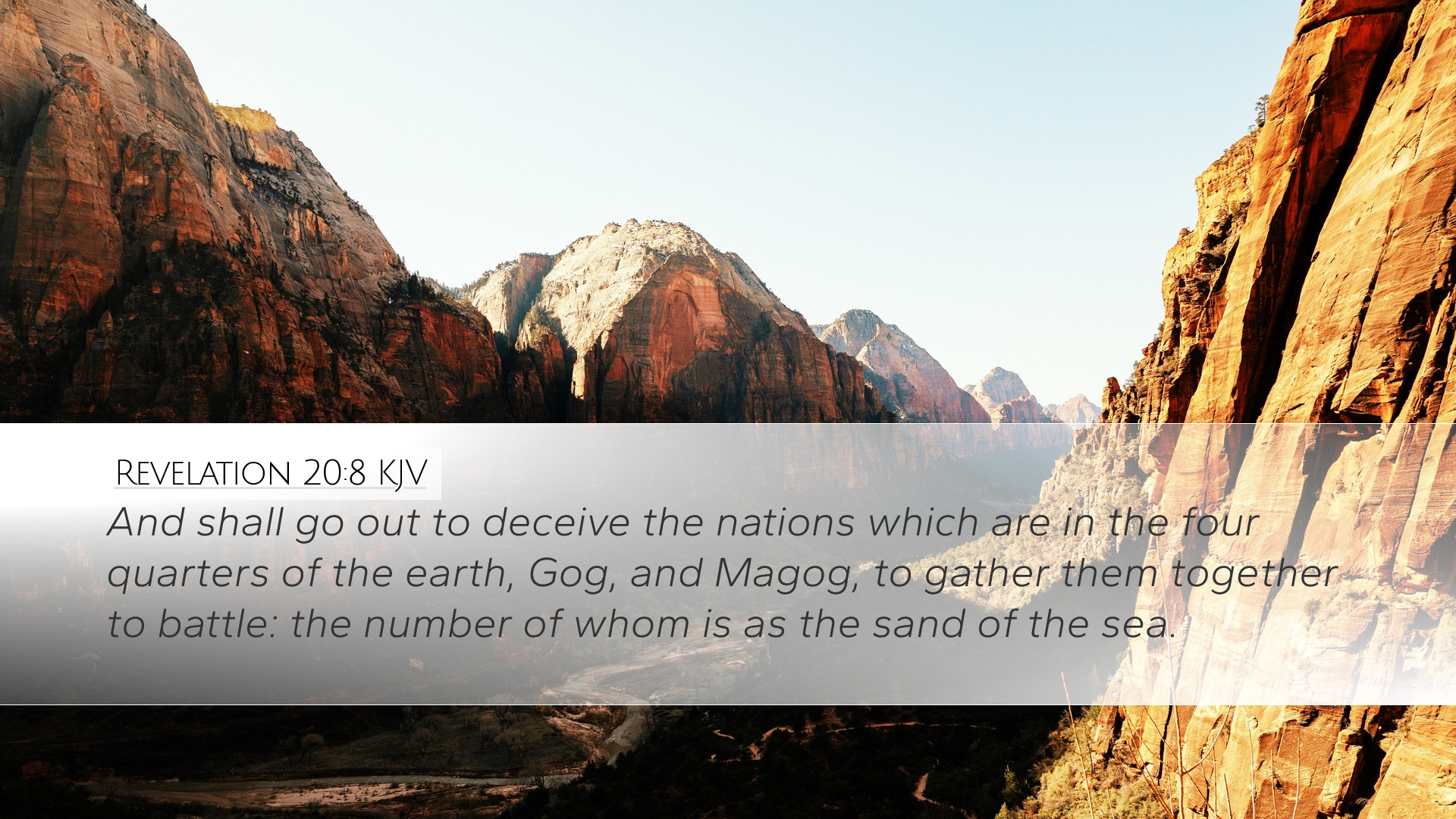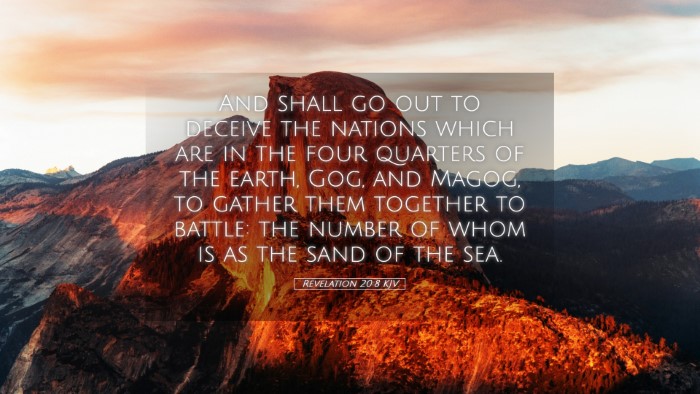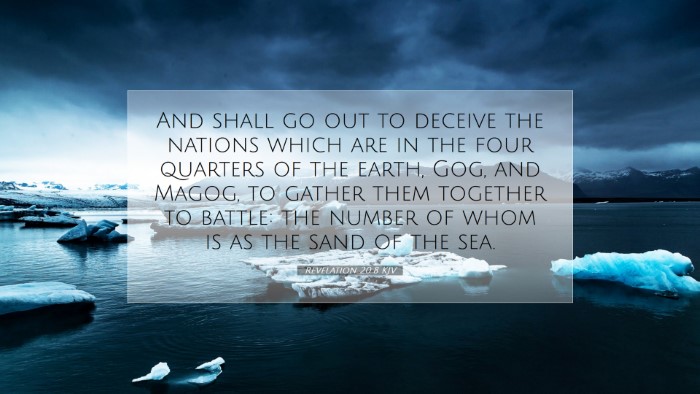Bible Commentary on Revelation 20:8
Verse: “And shall go out to deceive the nations which are in the four quarters of the earth, Gog and Magog, to gather them together to battle: the number of whom is as the sand of the sea.” (Revelation 20:8)
Introduction
The passage found in Revelation 20:8 encapsulates a critical moment in the eschatological vision of John the Apostle. This verse serves as a comprehensive summation of the deceptive strategies employed by Satan in the final conflict known as the 'Battle of Gog and Magog.' Various public domain commentaries provide rich insights into the theological implications, historical context, and future relevance of this verse.
Insights from Matthew Henry
Matthew Henry emphasizes the significance of deception as a primary tool used by Satan to recruit followers for rebellion against God. He writes that the phrase "go out to deceive" highlights a key tactic of the devil in his futile attempt to overthrow divine authority.
- Gog and Magog: Henry notes that these names symbolize the enemies of God, historically associated with fierce opposition to the people of Israel. He connects them to the ultimate hostile gathering in the last days, representing all nations opposing God’s sovereignty.
- The Four Quarters: The mention of “four quarters” symbolizes the universality of this gathering, indicating that the forces of evil will muster from every corner of the earth, thus amplifying the scale of this rebellious act.
Insights from Albert Barnes
Albert Barnes presents a detailed interpretation of the prophetic implications contained within this passage. He views the use of “the sand of the sea” as an image to demonstrate the vast multitude that will join this rebellion, reflecting the overwhelming numbers that characterize the forces aligned against the faithful.
- Culmination of Deception: Barnes indicates that this moment marks the climax of Satan’s deception, where he gathers individuals from all nations and regions, leading them into a confrontation against God’s reign.
- Significance of the Battle: He asserts that this battle is not merely physical but also spiritual, representing a comprehensive clash between good and evil, where ultimate truth confronts pervasive falsehood.
Insights from Adam Clarke
Adam Clarke offers a thorough examination of the symbolism and the eschatological context of the text. He discusses the historical associations of Gog and Magog and outlines their representation of chaotic nations rising against God’s kingdom.
- Symbolic Representation: Clarke identifies Gog and Magog with the enemies of Israel, elaborating that their rise indicates a time of great tribulation for the people of God, echoing prophetic themes throughout Scripture.
- Futility of Rebellion: Clarke stresses that despite the vast number and powerful alliances formed against God, this rebellion ultimately proves futile, as divine sovereignty guarantees victory for the faithful.
Theological Themes
This verse brings forth several vital theological themes that resonate profoundly with the reader.
- Deception and Sin: The mention of Satan's deception highlights the ongoing challenge of discerning truth amidst falsehood, a theme prevalent throughout Christian teaching.
- Divine Judgment: The gathering of nations signifies the forthcoming judgment that God will enact, reminding believers of the certainty of divine intervention in the affairs of humanity.
- Hope for Believers: The ultimate triumph over evil depicted in this verse provides hope and encouragement for believers, reiterating that God remains sovereign and in control, even when faced with overwhelming adversity.
Conclusion
In sum, Revelation 20:8 serves as a potent reminder of the ongoing spiritual battle that Christians navigate. Insights from Matthew Henry, Albert Barnes, and Adam Clarke collectively underscore the gravity of deception and the eventual triumph of God’s kingdom. For pastors, students, theologians, and Bible scholars, this verse invites deeper reflection on the nature of evil, the prophetic declarations of Scripture, and the assurance of God’s ultimate victory. Engaging with these commentaries enriches our understanding and equips us to confront the realities of spiritual warfare in our time.


